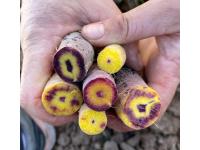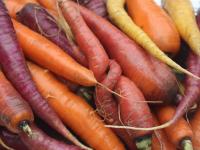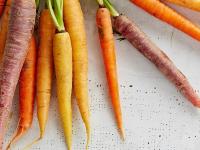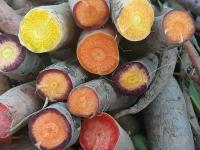Join eOrganic for 2 webinars from the CIOA (Carrot Improvement for Organic Agriculture) Project! Click the links below for details and registration! The webinars take place at 11AM Pacific, 12 Mountain, 1 Central, 2 Eastern time and are free and open to all!
| Date | Title | Presenters |
|---|---|---|
| September 24, 2025 | Carrot Breeding for Organic Production Systems: Important Traits and Advances | Philipp Simon, USDA-ARS |
| NOTE: Date postponed due to government shutdown. We will announce the new date when the shutdown is over! Registration will not be required. |
Carrots in History, and History in Carrots: Where Today’s Carrots Came From, and How They Got There |
Philipp Simon, USDA-ARS, Susana Cabrera-Mariz, Organic Seed Alliance |
September 24: Carrot Breeding for Organic Production Systems: Important Traits and Advances
Register at https://oregonstate.zoom.us/webinar/register/WN_RIHnxp7dS1KeRyBY29szcg
Organic agricultural production systems differ from conventional systems in their management of soil nutrients, weeds, pests, and diseases. Together with these differences in management systems, cultivars developed for organic systems can include traits that differ from cultivars bred for conventional systems. For example, genetic differences in root architecture and capacity for symbiotic relationships have been found to differ in crop breeding stocks developed for organic production systems, relative to breeding stocks targeted for conventional nutrient management. Accelerated seedling vigor, rapid plant growth, and greater leaf area are traits that promote early stand establishment and canopy closure, and consequently improved weed control for organic systems. The same pests and diseases diminish crop productivity in organic and conventional systems; but without pesticides, the urgency for the incorporation of effective genetic resistance is heightened for crops grown in organic production systems. Intra-varietal genetic diversity is being explored for variation in these traits that contribute to yield stability under the greater diversity of cropping systems that are found on organic farms. Marketers and consumers of organically grown vegetables and fruits often place a greater premium on flavor, nutritional value, and novelty, and this broad range of market demands has stimulated the incorporation of numerous traits into cultivars for organic production that are otherwise unfamiliar to most consumers. To meet these diverse production challenges and consumer expectations, the CIOA project has been tapping into the breadth of genetic diversity of the global carrot crop. Continued success in breeding will rely upon screening more diverse germplasm and incorporating novel traits selected under low input, organic management practices.
Carrot History and History in Carrots: Where Today's Carrots Came From and How They Got There. Original Date of Oct 21 has been postponed due to the shutdown but we will reschedule as soon as it is over and we can get approval from the USDA. We will announce the new date in our newsletter and registration will not be required.
Each crop of modern agriculture has been domesticated from one or more wild plant species by generations of local farmers where those wild relatives have naturally occurred. In the case of carrots, Central Asia, including the current countries of Afghanistan or Iran, is where carrots were likely to have first been domesticated as a root crop 1000 to 1500 years ago. Surprising to carrot consumers today, the first carrots were not orange, but rather yellow and purple. And many vegetable growers are well aware that there are also red and white carrot cultivars, as well as combinations of these colors. Carrot colors are only one characteristic that has been bred into today’s carrot crop from its wild relatives, heirloom varieties, and landraces. To broaden the genetic diversity of carrots available for crop improvement, plant collecting expeditions have been a valuable source of new variation for breeders to tap into. In 11 collecting expeditions to those global regions where wild carrot occurs including Central Asia, Turkey, North Africa, Europe, Russia, and the Americas, 350 carrots were added to the USDA germplasm collection in the last 40 years. Recent research evaluating around 700 carrot landraces and heirloom varieties in that collection identified new gene sources for nematode, cavity spot, and Alternaria leaf blight resistances as well as earlier stand establishment, reduced bolting, drought tolerance, juicier texture and sweeter flavor. And some of this genetic variation is being released as new carrot breeding stocks with pest and disease resistance, novel colors, and improved consumer quality. Given the wide distribution of carrots globally and broad genetic variation of carrots, the prospects are bright for future germplasm collection and for the discovery of new variation to improve traits important for carrot growers and consumers.


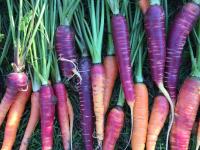
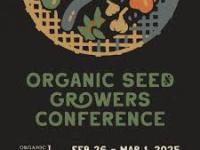
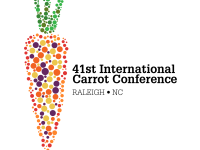
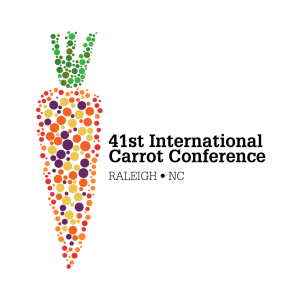 Organic Seed Alliance is delighted to be participating in the 41st International Carrot Conference, happening in Raleigh, North Carolina from July 8-10, 2024. This year's conference will share the latest in carrot research and innovation, featuring research presentations and posters as well as an opportunity to visit carrot cultivar field trials.
Organic Seed Alliance is delighted to be participating in the 41st International Carrot Conference, happening in Raleigh, North Carolina from July 8-10, 2024. This year's conference will share the latest in carrot research and innovation, featuring research presentations and posters as well as an opportunity to visit carrot cultivar field trials. 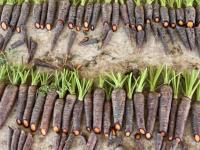
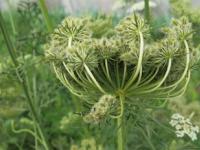
 On February 7th, the Canadian Organic Vegetable Improvment Project (CANOVI) is offering a webinar about their carrot trials and breeding farm club by Micaela Colley of the Organic Seed Alliance, Phil Simon of the USDA ARS and CANOVI Project Leads Weijia Wang and Chris Thoreau. CANOVI is led by The Bauta Family Iniatiive on Canadian Seed Security in partnership with the University of British Columbia. Learn more and register
On February 7th, the Canadian Organic Vegetable Improvment Project (CANOVI) is offering a webinar about their carrot trials and breeding farm club by Micaela Colley of the Organic Seed Alliance, Phil Simon of the USDA ARS and CANOVI Project Leads Weijia Wang and Chris Thoreau. CANOVI is led by The Bauta Family Iniatiive on Canadian Seed Security in partnership with the University of British Columbia. Learn more and register 